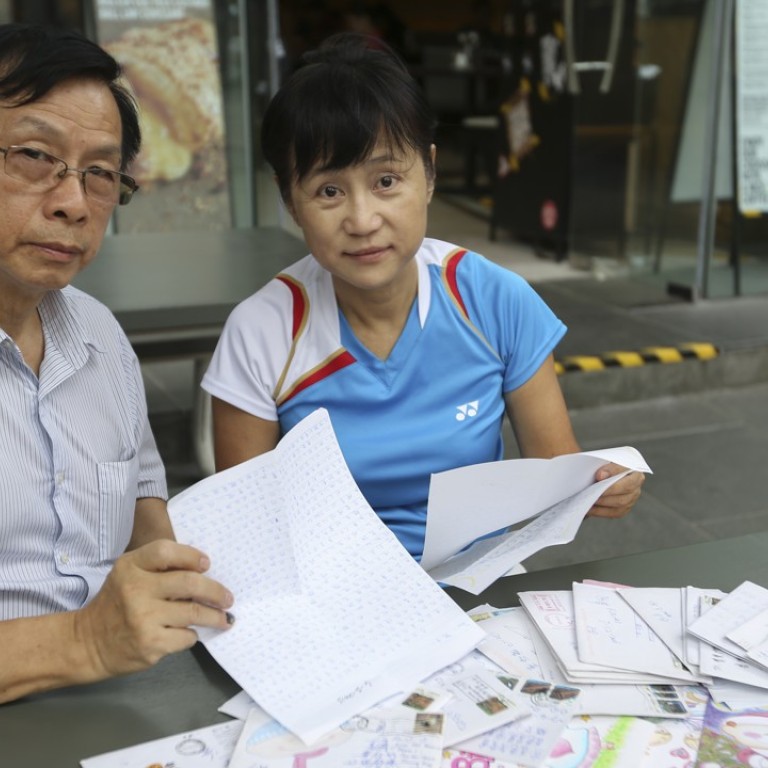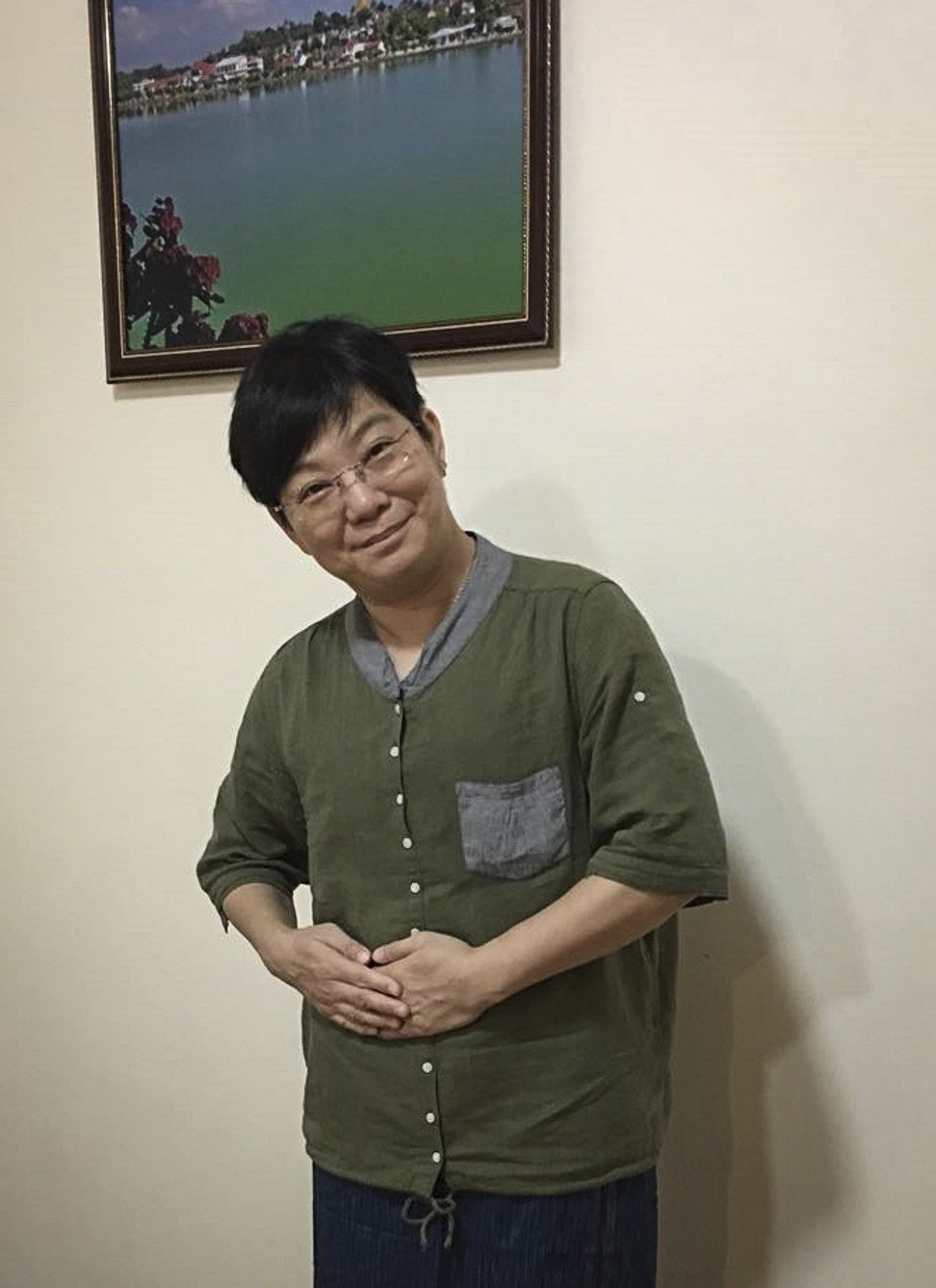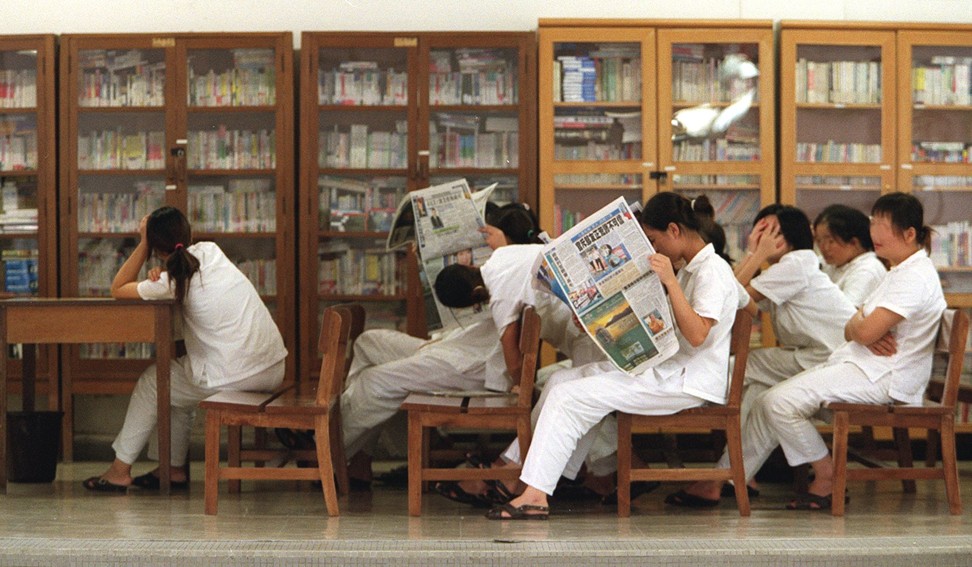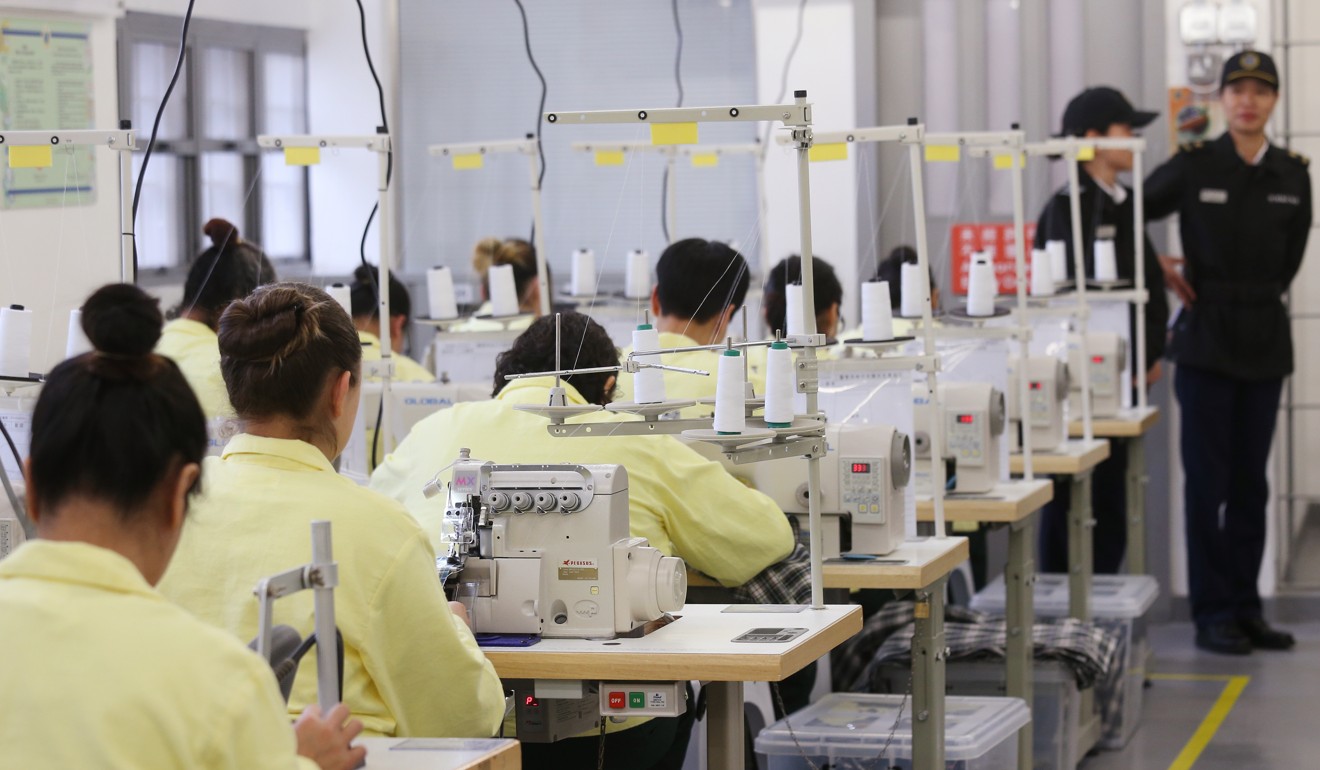
How Hong Kong’s prisoners are given hope by selfless pen pals and a local radio programme
A group of compassionate volunteers offer support and friendship to Hong Kong’s prison population by exchanging letters, allowing inmates to feel connected, express themselves and share their stories with the outside world
Every Sunday evening, prisoners across Hong Kong fall silent, earphones in, hoping to hear their letters read out by the host of Devoted to You. Broadcast on RTHK Radio One from 6.20pm to 8pm, the show offers a ray of hope and encouragement to inmates across the city, says former offender So Ha.

So was released in 2013 and now works for NGO The Christian Home of Faith and Grace, which helps in the rehabilitation of female drug users through pastoral care and gospel, as they seek to rebuild their lives. So says the job makes her happy. She is able to draw on her past experience to serve those currently behind bars.
Prisoner rehabilitation is a job for Hong Kong’s community at large
So says she spent most of the HK$100 monthly prison salary she earned from making clothes on envelopes, stamps and paper to write letters to Devoted to You, which gave her an outlet for her feelings of isolation and frustration. The show is a lifeline to the outside world for many lonely inmates in Hong Kong, who are allowed only two visits a month, each lasting for a maximum of 30 minutes.
So says she had little support from her family while she was incarcerated, so writing letters to the radio show and tuning in on Sunday evenings were highlights of her week, and kept her spirits up.
“Every week you would have something to look forward to, hoping your letter would be read out,” So says.

After reading out that first letter on air, Yip received a deluge of correspondence from other inmates and the nature of the radio show changed.
Captive audience: the Hong Kong radio man connecting prisoners with families worldwide every Sunday
Yip says many prisoners seem to have poor self-image because they assume they will not be accepted by society once they have been in prison. “What I want to do is to let them [prisoners] know that some people do care about them,” she says.
Yip says Devoted to You has become a bridge connecting inmates with the outside world. Relatives of prisoners have told her they have gained a better understanding of the lives of their incarcerated family members and other prisoners through the show.
“There are things that inmates can’t say in person, but through their letters, inmates can express themselves better,” she says.

Yip admits that she did not have a positive impression of prisoners before she launched her radio show. She believed that jails were “full of bad guys”. Hosting Devoted to You changed her perception as she learned more about her pen pals and prison life.
“From their letters, I have found that they are very willing to change,” Yip says.
Hong Kong’s prison system explained
Former inmate So knows exactly how meaningful it is to receive mail while being locked away. While serving her last sentence, So was touched when she was contacted by a pen pal. The married mother who wrote to her was a volunteer for the Hong Kong Christian Kun Sun Association, an organisation dedicated to helping rebuild the lives of prisoners, those in rehabilitation after their release, and their families.
So and her pen pal exchanged letters once a month. So says there is no limit to the number of letters a prisoner can receive, but it takes a long time for mail to get in and out of prison. An inmate might receive a letter a month after it has been penned.
So recalls her pen pal shared a lot of personal details about her family and work, while So told her about her life in the prison.

“It is funny how sometimes we don’t know what to say to a person we know. But with people we don’t know, we can talk about anything. You don’t have to worry that they will gossip about you,” So says.
Another NGO that matches inmates with members of the public as pen pals is the Prisoners’ Friends’ Association (PFA), which was founded in 1982 at the suggestion of the commissioner of the Correctional Services Department. It is dedicated to helping inmates and their families cope with incarceration, and works towards rehabilitation and adjustment to society after time has been served, to contribute to a reduction in crime.
I don’t care what they have done in the past, because now they have become my friends
Jack Fung Sun-wah, director of the association, says letters are invaluable to those behind bars.
“Inmates can read the letters again and again; but some might not be visited by anyone for a long time.”
He says there are about 30 volunteers on the association’s pen pals’ programme, who exchange letters with inmates regularly. Volunteers must be at least 18 years old. They come from different backgrounds.
One such volunteer is Michelle Lui Kit-hing. She joined the association as a volunteer in 2006, and began regularly visiting inmates whose relatives and friends couldn’t, or didn’t want to find the time.
She started to exchange letters with inmates in 2011, and now she writes often. At one time she had as many as 30 inmate pen pals.
Lui insists on only sending handwritten letters. “Prisoners can only write by hand, and I think it feels more special to receive a handwritten letter,” she says.

On rare occasions, Lui has had the opportunity to meet her pen pals in person, such as the graduation ceremonies in jails for prisoners who self-study and gain academic qualifications. Lui’s prisoner pen pals often invite her to the ceremonies to share the pride in their achievements.
Can Hong Kong break its prison shackles to cut crime?
Although being a pen pal offers support to prisoners, volunteers can also gain from the experience. Lui says the activity has enriched her life. She says she has learned that everyone has their own story. Reading the stories of her prisoner friends, she has learned that many commit wrong deeds out of desperation or because they feel they have no other choice. “Everyone should have the chance to correct their mistakes,” Lui says. “It is just a question of whether there is someone willing to lend a hand and show support.”
She recalled one of her pen pals wrote to her confessing that he had committed murder, and worried that she would stop writing to him. “He wrote to me saying, ‘if you feel uncomfortable, you don’t have to reply to me. I will understand’,” says Lui. She replied reassuringly: “I will continue writing to you until you are released.”
“I don’t care what they have done in the past, because now they have become my friends,” Lui says.
